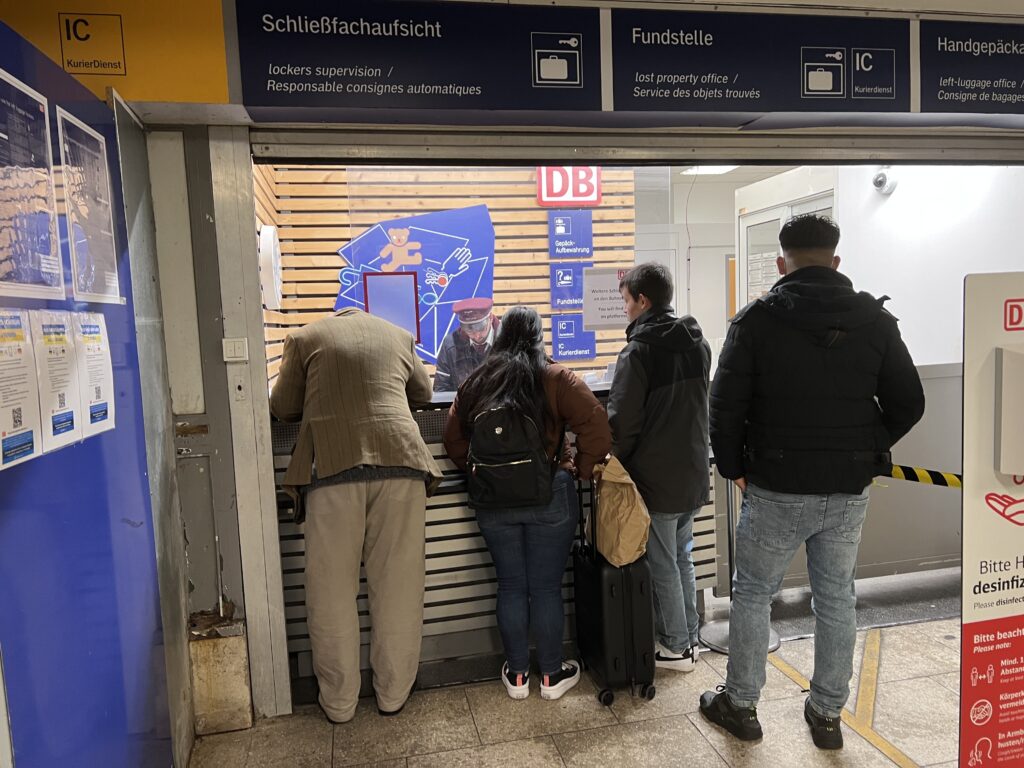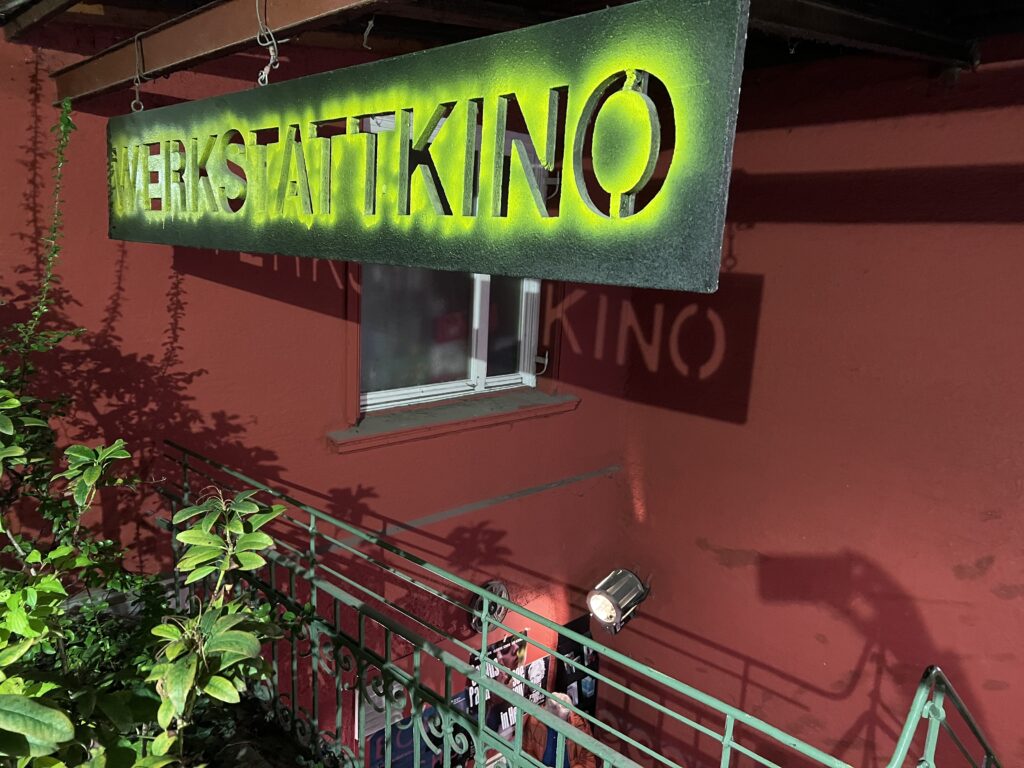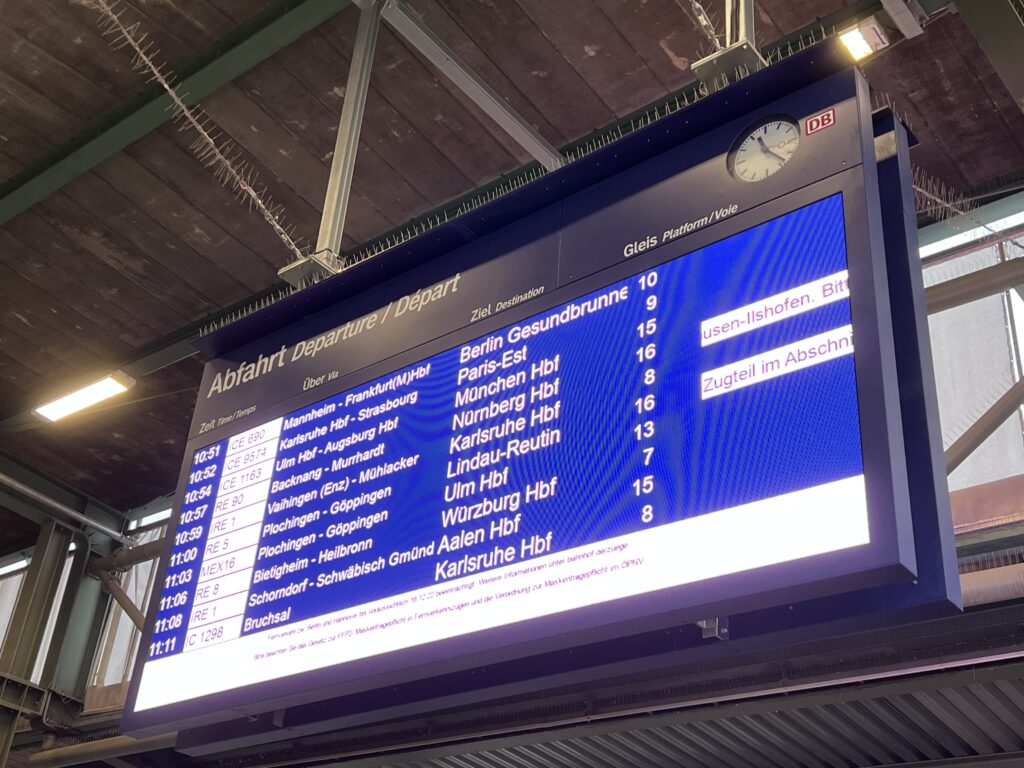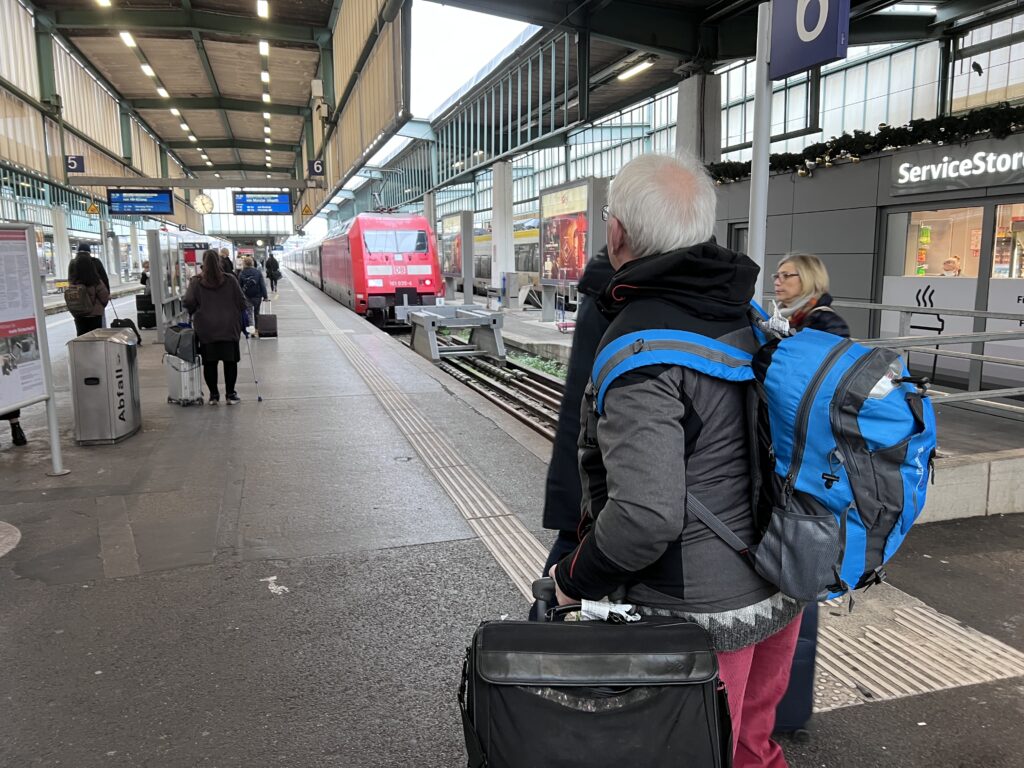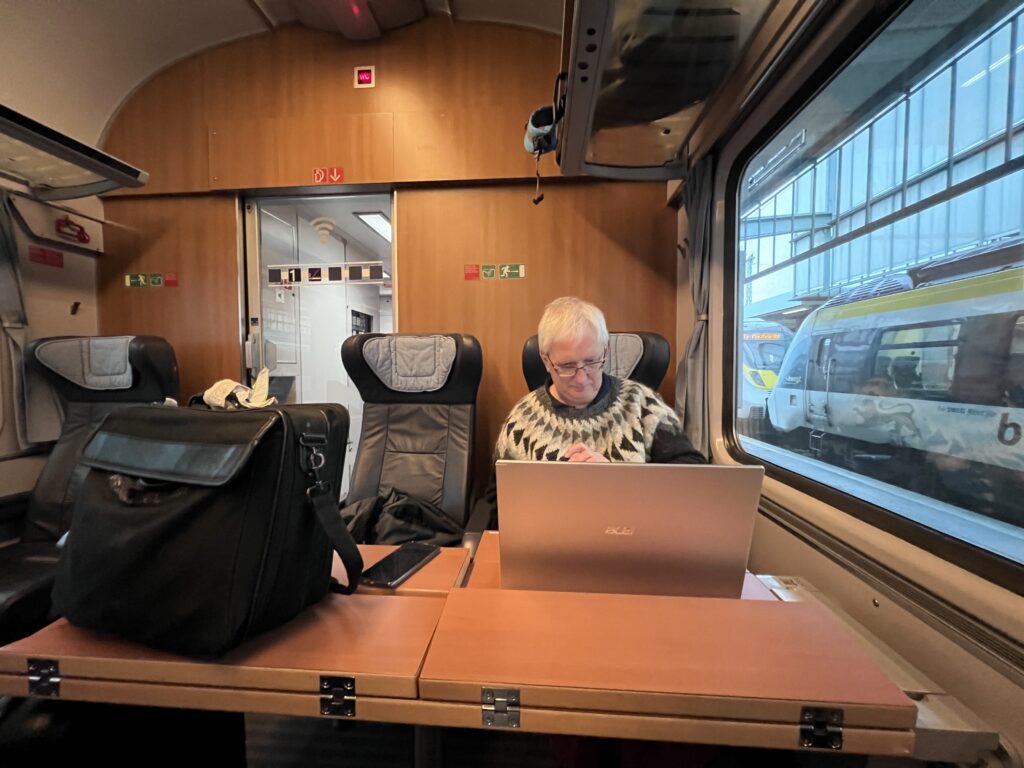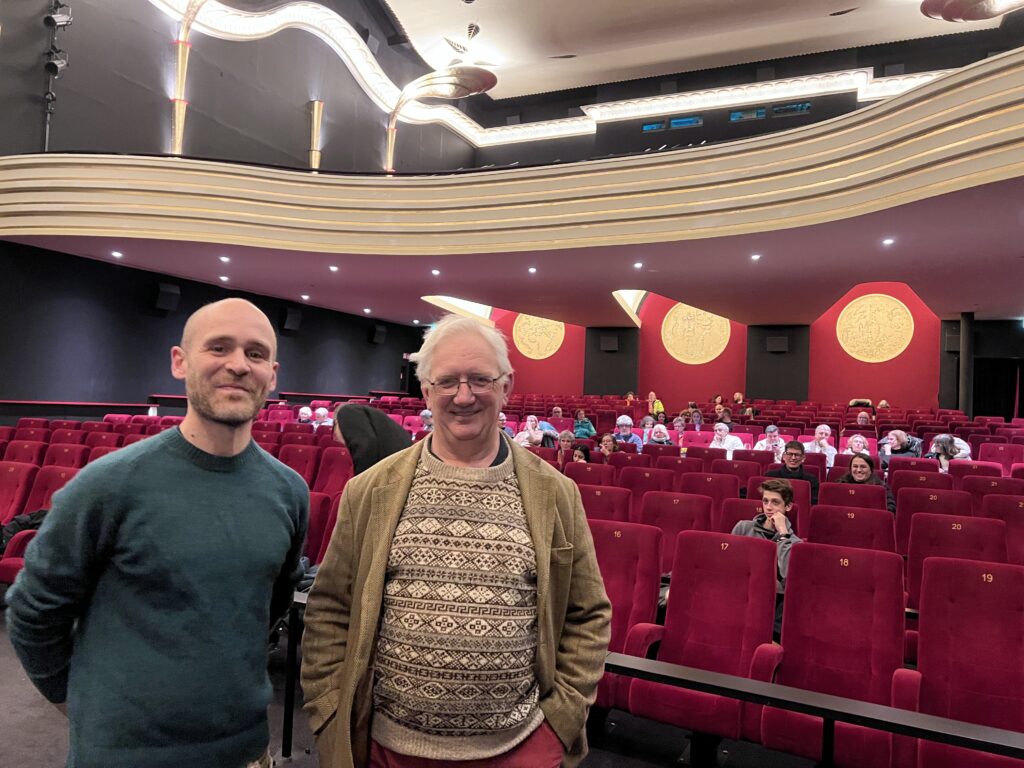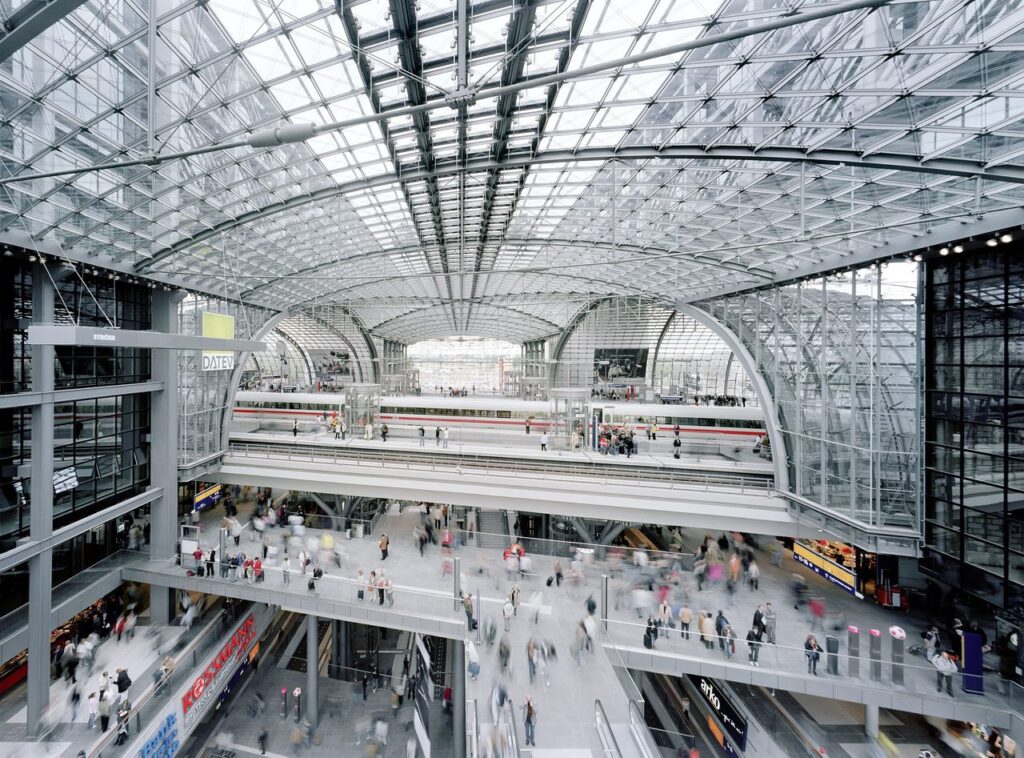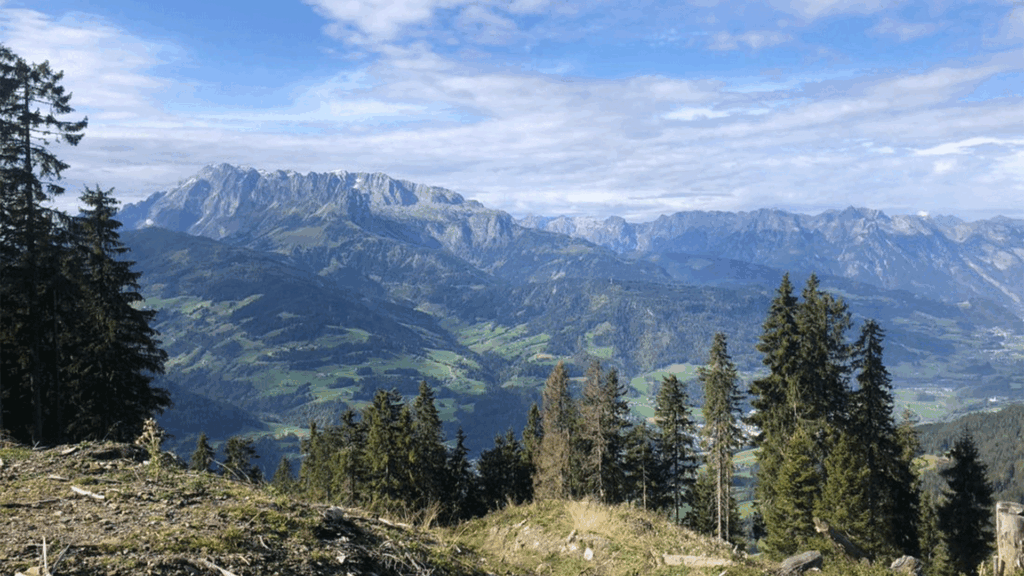Trains (mostly), Planes and Automobiles Part 4 211
Having entirely unexpected cause to become acquainted with the subject, I learn that all main railway stations in Germany have their own police stations. At Bochum, you have to walk round the outside to find a door with a buzzer, which nobody answers.
Heading back into the station, I approach the first pair of policemen I come across (the visible police presence on German stations is also remarkable). I explained to them I had a bag stolen and they walked me round to the police station which, once inside, is full of policemen, all carefully ignoring the buzzer.
I am ashamed by my lack of German and very impressed by the police language skills. But unlike his colleague in Frankfurt, this policeman made no pretence at all of interest in actually finding the thief.
He laughed nervously at my suggestion I was being targeted, having had two laptops stolen in four days. He looked at me suspecting I was not quite sane, and said it happens all the time. He just shook his head when I suggested the CCTV on Duisburg or Bochum stations might show the thief with the laptop bag.
He very quickly completed the theft report and gave it to me. I think he suspected I was engaged in a repeated insurance fraud he could not be bothered investigating, and just wanted me out of his hair.
We were staying in a particularly barren Mercure Hotel in a high block just opposite the station. I was on the 12th floor. Once checked in I decided that despondency would not help, and that I should turn the situation around by embracing the chance for laptop shopping.
Bochum is a city with dreadful problems. Leaving the next day we passed on the train a vast Opel plant which extended for miles and was in varying stages of decay. It closed down five years ago. Shortly before that Nokia closed a major plant in the city. Before that the mines closed.
If you go back further, three quarters of all the buildings of Bochum were destroyed by allied bombing in the Second World War. This was ironic because the city was predominantly Polish, one of those isolated populations left stranded by the tides of European history.
Large numbers of Poles were sent to the concentration camps alongside the Jewish population (many of whom were also Polish) and the rest put to forced labour. Additional slave labour was brought from Poland by the Nazis to keep the industries going.
As a centre of Ruhr heavy industry, Bochum was largely obliterated by the allies but most of the victims were Polish. With this horrible history, it seems churlish to note that the current shopping centre is just horribly modern and ugly.
I went to a large chain shop called Cyberport near the hotel. It had a great range of laptops but the prices were very inflated. Every laptop was marked not just with its price but with an interest free credit offer and the price of monthly instalments.
This explained the prices – it was a rip off, never never shop for computers. It was also an indicator of Bochum’s economic woes.
I next went to a flashy store called Gravis, where a very keen and polite assistant was all over me, but sadly they only sold Apple. I explained to him politely that I didn’t use Macs and was too old and tired to want to learn new systems. He replied they sold accessories not specific to Macs, like mouses and keyboards. I politely declined this rather random offer, and went in search of my next shop.
The streets of the centre were closed off for the Christmas Market, with little illuminated wooden kiosks everywhere and crowds it was difficult to get through.
These were in every city we visited, and great fun. But they had changed since I first saw them in Germany in the 1990’s, with much less selling of handicrafts and decorations, and a much higher percentage of alcohol and sausage stalls.
Bunches of people stood around in the freezing temperatures for hours eating and drinking. Bochum was a bit rowdier than most. It was snowing, and I was very much regretting that the thieves had got the Gore-tex gloves that had been a Christmas present from my sister.
Call me a grinch, but half an hour below zero with the Gluhwein is enough for me. Give me a nice warm pub.
Anyway I pushed my way through to Saturn, Germany’s big chain computer store. It was a huge shop, but the actual range of product surprisingly limited and customer service almost non-existent.
They had no model like the one just stolen. Then my eyes were drawn to a laptop with a glowing back and illuminated keys which constantly changed colour.
Colour-changing keys! I had to have it! It was a brand I had never heard of – Captiva – and it was half price because you were buying the display model.
Niels had helped me set up the Laptop of the Four Days with massive security, so I couldn’t even start up the damn thing. (The first stolen laptop had once been secured by Julian Assange with a process involving a gold plated USB stick. That too had been totally beyond me to get into, and much of that had to be removed).
Niels was horrified by my choice. It was a gaming laptop, he said. The money had all gone into graphics. It absolutely was not what I required.
If you can imagine somebody saying “Colour changing keys” in the voice of Homer Simpson saying “Donuts”, that is how I replied. We bargained them down further from a half price 790 euros to 750 euros, and here I am! The keys were a sexy turquoise when I started that sentence and now they are the deepest ocean blue. What bliss.
Orange! They’ve gone orange!
We then had to get a taxi to the cinema, which was right on the semi-rural outskirts of the city, a lovely little independent venue in an old railway station building. It was a joint screening with Amnesty International, the cinema was full and the audience was not only comprised of committed activists.
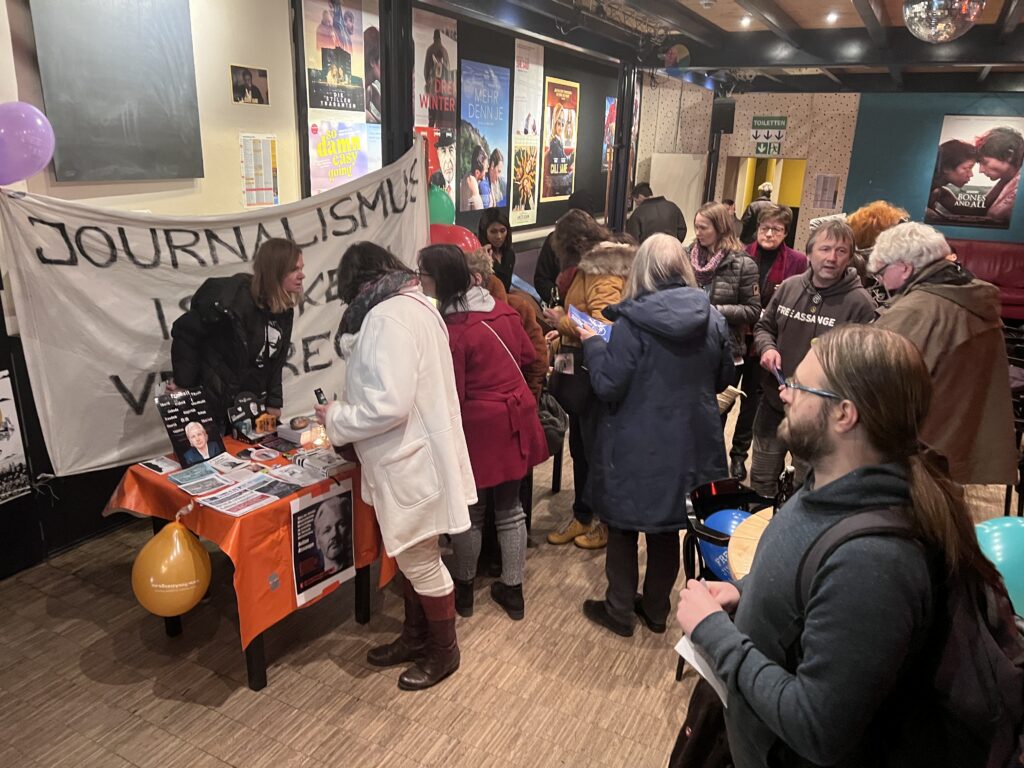
I was also pleased to meet Bibi, who had been coordinating these events, and with Irmtrud Wojak, a local campaigner who has written a fascinating biography of Fritz Bauer. He was a great prosecutor who went after not just Eichmann, but the “respectable” Nazis and their enablers, particularly in the legal profession. She gave me an English copy which was to make train journeys pass faster.
The only problem with the location was that it was a long walk to the nearest restaurant and very cold and snowy outside. Niels and I had eaten no lunch or dinner so we were keen to eat while the film was showing, and we ordered pizza delivery.
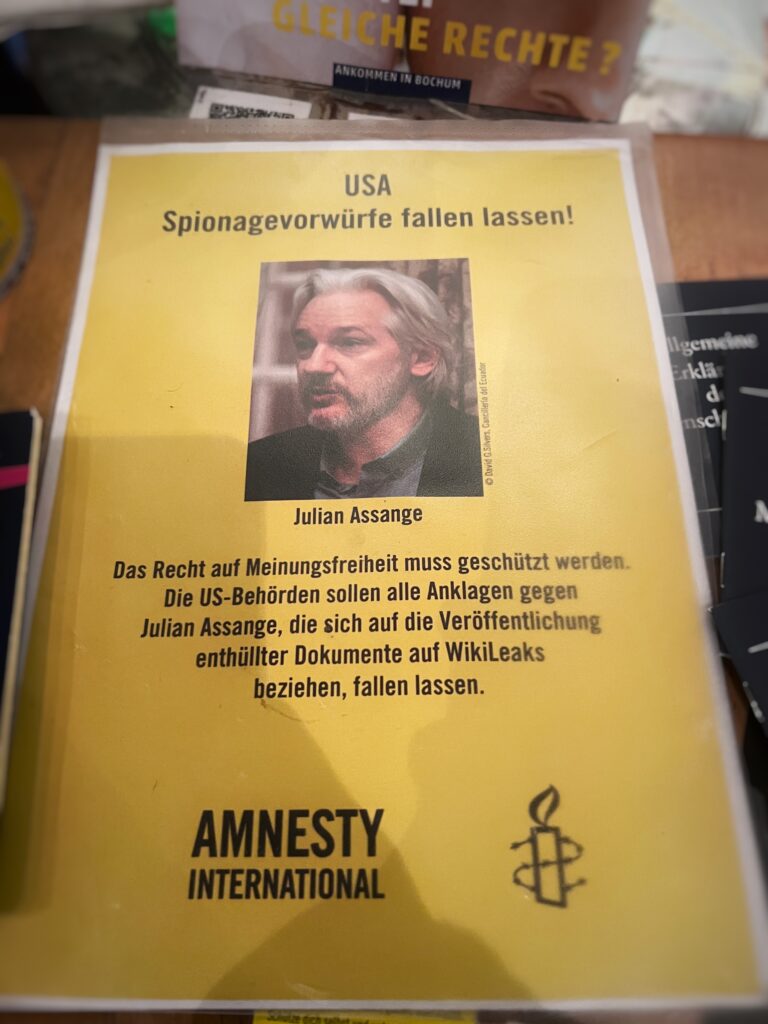
I was just tucking in to my Hawaiian pizza, amid general comments on my bad taste, when my phone started pinging incessantly. There was a whole stream of codes for two factor identification. They were from my various email accounts, from Facebook, Twitter, my bank, shops – a plethora of accounts. All coming through almost simultaneously.
This meant that somebody had got past the password and fingerprint protection on one of the two stolen laptops, and then got through the passwords on the individual accounts (which had all been changed after the first theft).
The question was, had they access to my phone?
I will confess this put me in a state of some shock. I had been trying very hard not to let the laptop thefts get to me. On the first laptop, I had convinced myself some random thief may have just pinched it when I was in the toilet, even though it was obviously outdated, filthy, cracked and in poor condition.
But the theft today was inexplicable. We had changed into that train at Frankfurt airport station, and that first class compartment was absolutely heaving with expensive luggage.
There were many choices to steal that looked much more potentially valuable than my twenty year old, large and very battered laptop bag. The luggage racks right by the exit doors were overflowing with expensive bags of all shapes and sizes.
The risk and technique required to lift my old bag from the overhead rack right above our heads in the middle of the carriage made no sense as a random theft, when many almost risk free thieving options were available.
At the micro level my bag was next to Niels’ camera bag. The contents of that were ten times more valuable and the bag looked like that would be the case. But it was not taken.
When I blew the whistle in 2005 on extraordinary rendition and torture, I was for a time subject to the very close and obvious attentions of the security services. That died down, but at times flared up again, particularly around interactions with Wikileaks.
In the Spanish case against UC Global for spying on Julian, on his lawyers and on others in the Ecuadorean Embassy, which included spying on me and hacking my phone, and following and burgling several people, Julian’s Spanish lawyer Aitor Martinez has told me that the evidence shows the CIA were “obsessed with” me as a target.
So none of this was new to me. Let me put it this way.
I am an admitted whistleblower of Top Secret information (to compare, nothing Chelsea Manning disclosed was above Secret). I collaborate with Wikileaks. I am at the most hardline end of supporters of Scottish Independence. I reject NATO, nuclear weapons, Israel and neo-liberalism. I have high level friends and contacts across the globe. If the security services are not targeting me, what are they doing?
I know the capabilities of the security services, and I have always assumed that they have access to the entire contents of my laptop anyway. Encryption may work for avoiding some mass surveillance, but not for individual targets when the state are prepared to put in the resource.
I also choose openness to my fellow man. I have no desire to view the world through a fug of suspicion. I have read the comments on previous instalments from the wise people who tell me that they never travel without a moneybag around their waist and their laptop bag tied to their legs.
Well, that is simply not who I am. The seven year laptop that was first stolen had been with me everywhere for hundreds of thousands of miles. It had traveled over much of Africa several times. It had been to the United States more than once. It had been simply all over Europe.
I had left it unattended while going to the loo on a train or in an airport lounge, many scores of times. I had left it sitting in hotel rooms in Washington DC. Once or twice I have checked it in to a flight. It had sat at the back of a bar at Doune the Rabbit Hole. It has hung from restaurant coat racks. It has sat in the back of a pick-up in Ghana.
That was just that one laptop. I have used a succession of laptops for around thirty years and always acted in the way I describe. I have lived in Russia and Poland and Ghana and left my laptop bag on seats when I go dance, or on a table in a conference while I have some lunch. None had ever been stolen.
I could have spent thirty years with my laptop tied between my legs, but that would not be me.
If you choose to live that way, do what makes you feel happy and safe. But let me point out the logical fallacy that because you obsessively tie yourself to your laptop, it does not follow that anybody would have stolen it had you not done so.
Anyway, while two random thefts of laptops in four days was not impossible, I do not believe it was that, particularly given the quite extraordinary circumstances of the second theft.
This was also particularly annoying because of the loss of the other contents. The gloves I have noted. I had also lost my reading glasses, which are very essential, my phone charger, my bank verification machine, all the receipts from my trip and a variiety of other letters and documents.
With all those two factor verification notices coming through, I needed to get back to the hotel, set up my new laptop and change every password I have. But the audience was now waiting to hear me speak.
I am nothing if not an old trouper, so I went on. I believe it went very well. But frankly my mind was so frazzled I do not remember anything that evening after the phone started pinging.
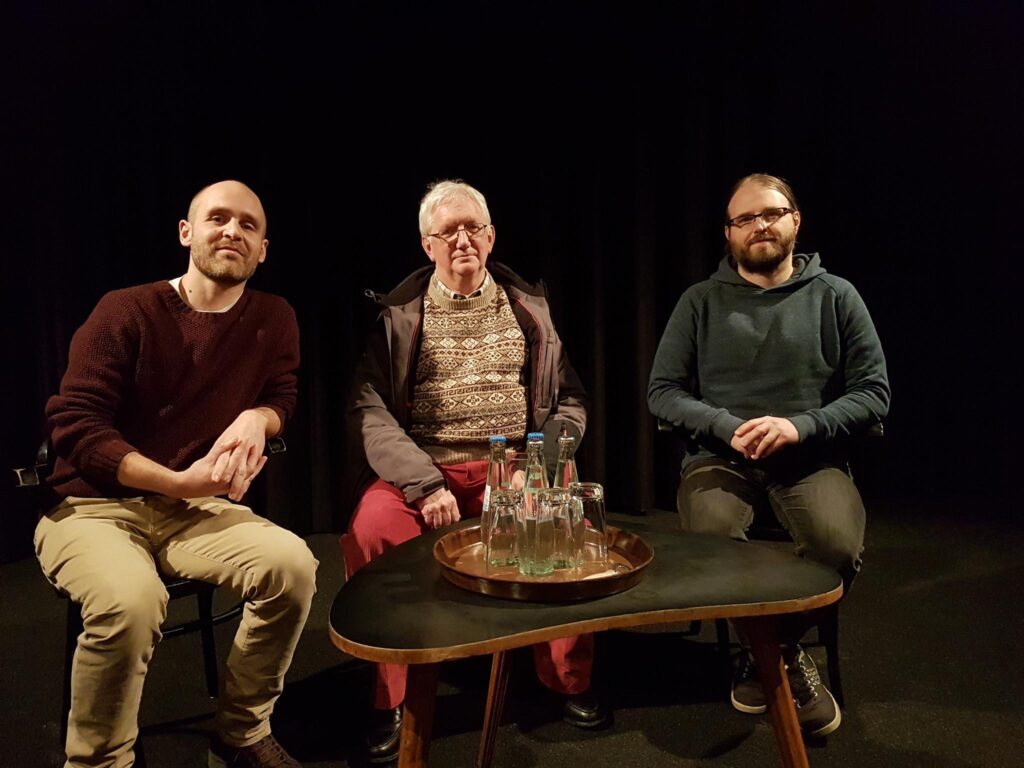
Back at the hotel, Niels started setting up my new laptop with dizzying layers of disc encryption and self-destruct mechanisms.
Everything now had passwords of enormous length and complexity, containing characters I had no idea existed, from an external random generator.
Presumably, like the monkeys, if you kept it going infinitely you would get the complete works of Shakespeare.
It was 2am before I could actually start getting into my accounts.
There was no evidence that anybody had got past the two factor identification and actually been inside anywhere. As I say, I had always assumed they can remotely anyway, and I suspect most likely the whole thing is just an attempt at intimidation.
Most importantly of all, none of Niels’ security installations had stopped the keys from changing colour.
Merry Christmas Everybody.
————————————————-
Forgive me for pointing out that my ability to provide this coverage is entirely dependent on your kind voluntary subscriptions which keep this blog going. This post is free for anybody to reproduce or republish, including in translation. You are still very welcome to read without subscribing.
Unlike our adversaries including the Integrity Initiative, the 77th Brigade, Bellingcat, the Atlantic Council and hundreds of other warmongering propaganda operations, this blog has no source of state, corporate or institutional finance whatsoever. It runs entirely on voluntary subscriptions from its readers – many of whom do not necessarily agree with the every article, but welcome the alternative voice, insider information and debate.
Subscriptions to keep this blog going are gratefully received.
Choose subscription amount from dropdown box:
Paypal address for one-off donations: [email protected]
Alternatively by bank transfer or standing order:
Account name
MURRAY CJ
Account number 3 2 1 5 0 9 6 2
Sort code 6 0 – 4 0 – 0 5
IBAN GB98NWBK60400532150962
BIC NWBKGB2L
Bank address Natwest, PO Box 414, 38 Strand, London, WC2H 5JB
Bitcoin: bc1q3sdm60rshynxtvfnkhhqjn83vk3e3nyw78cjx9
Ethereum/ERC-20: 0x764a6054783e86C321Cb8208442477d24834861a
Subscriptions are still preferred to donations as I can’t run the blog without some certainty of future income, but I understand why some people prefer not to commit to that.
